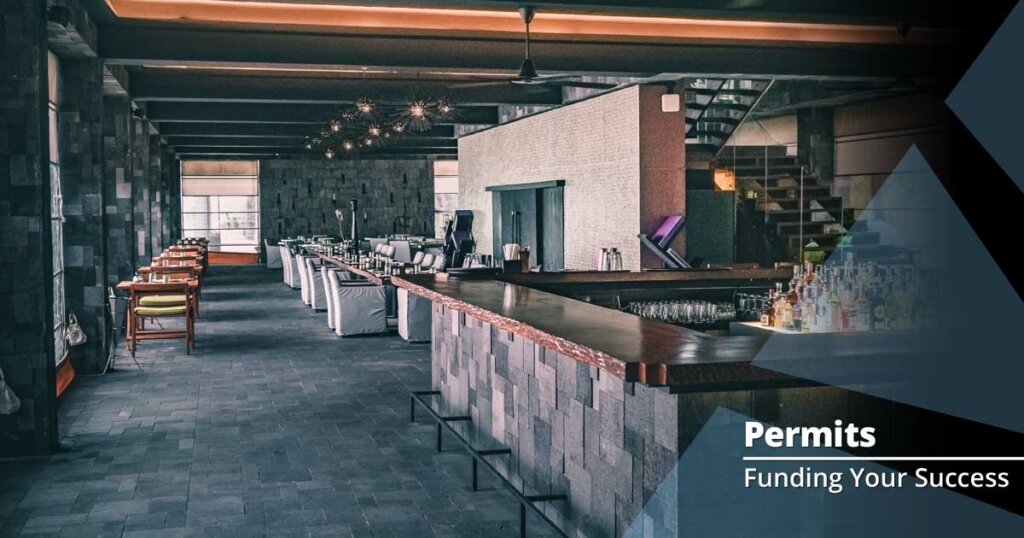Permits and Licenses You’ll Need When Opening a Restaurant
 There’s a ton to consider when diving into the world of small business ownership, and that’s before you even get to the paperwork and regulatory requirements. So, congratulations if you’ve gotten as far into the process as needing to know which permits and licenses to secure prior to Opening Day! Here, we’ll lay out just what’s essential in order to run your restaurant the right (legal) way in terms of the permits and licenses you’ll need when opening a restaurant.
There’s a ton to consider when diving into the world of small business ownership, and that’s before you even get to the paperwork and regulatory requirements. So, congratulations if you’ve gotten as far into the process as needing to know which permits and licenses to secure prior to Opening Day! Here, we’ll lay out just what’s essential in order to run your restaurant the right (legal) way in terms of the permits and licenses you’ll need when opening a restaurant.
Business License
No brainer. Your city or state will grant this, and it’s imperative. A business license gives you the legal ability to conduct business within your area. The application process generally involves registering your business’s name and paying a fee. You can check out the Small Business Administration’s website to learn more about obtaining a business license.
Employer ID Number
Your Employer Identification Number (EID) serves mostly as a tax ID number, and it’s what you file your business taxes under. It also allows you to hire employees and put them on a legal payroll. The IRS allows you to apply for one online, making the process super streamlined.
Certificate of Occupancy
Certificates of occupancy show your building is safe for patrons and employees alike. It’s issued by the local government where your business is located. To secure a certificate of occupancy, your building will need to be inspected by the local building or zoning department. A quick online search for your state’s certificate of occupancy procurement requirements will provide you with the specific information you’ll need to proceed.
Food Service License
Required for any business that cooks and serves food on-site, a food service license is definitely a must-have to open a restaurant. Before applying for a permit, be sure to check out the state requirements you’ll need to meet from the U.S. Food and Drug Administration. After you apply, expect a visit from the health department to ensure your establishment meets all Food Safety Regulations. After you get your license, the health department will stop by (in-person) on a regular basis to inspect and make sure everything is up-to-snuff.
Liquor License
Liquor licenses are obviously only required if you plan on selling alcohol. And unfortunately, your food service license doesn’t cover booze. Every state has its own Alcoholic Beverage Control Board, which is the agency tasked with regulating alcohol sales. Liquor laws can be incredibly strict—they dictate such things as when and where you can serve drinks, how much you can charge, and more. Our advice? Start the process early because it can take up to a year to secure one. And remember, it needs to be renewed every year.
Sign Permit
With details like size, lighting, and placement being determined by your city—not state—a sign permit is essential to owning a business. The type of sign permit you’ll need is also dependent on the type of sign you’re hoping to install. When applying for the permit (which you may be able to do online), make sure you have your business license and necessary permits; zoning certification; landlord consent; and design mock-ups. To learn more about sign permits for your area, do a quick online search and a local government site will have all the information you need.
Health Permit
Essentially any business that makes, sells, or distributes items to the public that can either be consumed or otherwise touch the body is required to have a health permit and a yearly health inspection. Depending on the type of food you’re selling at your restaurant, you may be exempt from this. For instance, if you only sell pre-packaged foods or beverages where no processing is needed, you may be able to forgo this one. Check with your local health department to learn more—you can reference this handy directory to find contact information for your area.
Dumpster Placement Permit
Sounds obvious, but you need a permit to have a dumpster on your restaurant’s property (and most restaurants definitely need a dumpster). Costs will vary depending on size and location.
For more advice on opening your own restaurant, as well as help navigating start-up costs and small business loans, contact ARF Financial – we’ve got the decades of experience you need to fund a successful business from the ground up.

